1. Make your main character want something.
2. Make your main character do something.
3. The components of a novel that readers care about most are, in order: story, characters, theme, atmosphere/setting.
4. Remember that nobody agrees on what a beautiful prose style is and most readers either can't recognize "good writing" or don't value it that much.
5. A sense of humor couldn't hurt.
A couple of things about this list. First, as a writer for young people, those first two on the list are majorly "duh". In fiction for young people, it's a given: the character wants; the character does. I imagine Laura Miller is thinking of *literary* novels, broody, introspective intellectual things. (She's in no way addressing children's literature; I don't know if she reads it.)
Jim and Clementine and I had a lovely dinner (of pizza, yum) the other night with Matt Holm and Jenni Holm (creators of, among other things, the Babymouse graphic novels for kids), Matt's wife Cyndi, Jenni's daughter Millie May, and picture book writer Eric Kimmel. (Super fun!)
 Well, Eric Kimmel made an interesting comment about how dull sometimes speeches delivered by *grown-up writers* can be (when you're used to hearing kid-lit authors speak), because they haven't honed their speaking skills before groups of kids and teens! I thought that was a really good point. Same with writing, of course. Adult readers might give a book a few more pages to engage them than a kid will. Writers for young people cannot eff around, and they cannot let the story loll, because a fourth grader will think nothing of abandoning a book whenever and wherever it gets boring.
Well, Eric Kimmel made an interesting comment about how dull sometimes speeches delivered by *grown-up writers* can be (when you're used to hearing kid-lit authors speak), because they haven't honed their speaking skills before groups of kids and teens! I thought that was a really good point. Same with writing, of course. Adult readers might give a book a few more pages to engage them than a kid will. Writers for young people cannot eff around, and they cannot let the story loll, because a fourth grader will think nothing of abandoning a book whenever and wherever it gets boring.This was reinforced by Jim's recent listening to audiobooks while illustrating -- he went through two fabulous YA sci-fi novels: Feed and The Adoration of Jenna Fox, and then attempted an "adult" title and found the beginning so ponderous and slow by comparison. Of course not all adult books have this problem!!! But. Very very very few books for young readers suffer from this.
But back to Laura Miller's list. Yeah, #4. I know it's true. There are readers like me who really savor the actual prose, along with the story, but I think of the general reading population, it is not so. And I whole-heartedly agree: story is more important than style! But man, I love it when an author does both. Those are the books I keep, recommend, reread, etc. Knowing as I know that style isn't really that important to [most] readers, I occasionally try to detach myself from it in my writing, to ignore it and write more quickly, not taking such care to shape the language as I do (which takes extra time!!!!). But I can't do otherwise than I do. I can only try to work faster within the framework of my brain's natural function. Besides, the tinkering with language is one of my favorite parts of writing!
I really have changed as a reader though. Back in my college days I leaned much more heavily toward style than story ("literatyoor, my good man"). Now I'm on the side of story, but hoping for a little style in there -- like spice for the soup, you know? It's not necessary, but man does it make the soup taste better!
Anyway, I thought it was a good list. Laura Miller also links to this list, put together by the Guardian (which Stephanie also emailed me the other day), including Elmore Leonard's top ten, which I guess is famous writer's advice, but I'd never read it before, and also Roddy Doyle, Neil Gaiman, Margaret Atwood, and many more. I like Neil Gaiman's #1: Write. It puts me in mind of Jane Yolen's advice: "Write the damn book," which I really ought to stencil on my wall. And I notice in passing perusal (haven't read these yet) this, by Jonathan Franzen: "It's doubtful that anyone with an internet connection at his workplace is writing good fiction." Ha ha! (And what am I doing right now instead of writing my book???? Hm???)
Okay. So that's that. Duly chastened, Jonathan Franzen (who I've never read). Good bye!
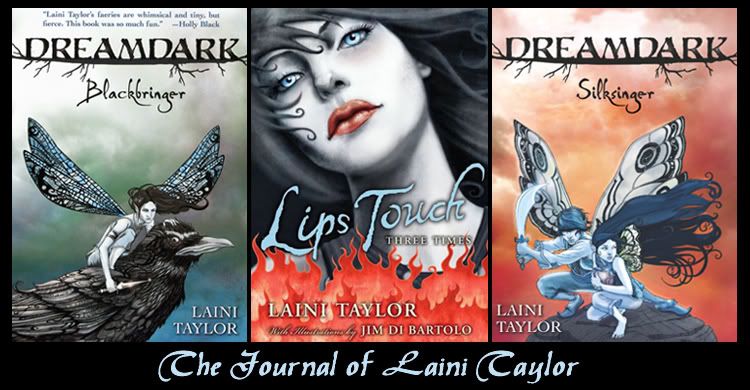

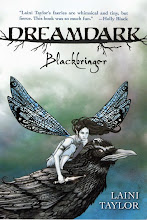

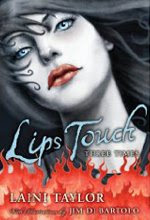


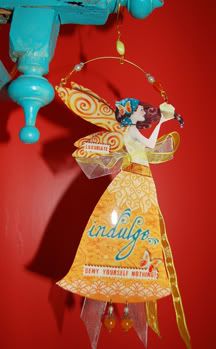
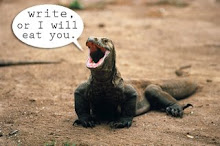
9 comments:
HAHAHAHA!!!!!!!!
That exact same Jonathan Franzen quote was the one that I picked out and tweeted. HA!! Obviously, I wasn't following his advice either.
(And Neil Gaiman's number one was my favorite! Which is why we are friends.)
Oh, and — AND! — Eric Kimmel! I love his work! How cool. :) And how TRUE about grown-up writers versus kid-lit writers. I'm so thankful for my years of doing storytelling for the kiddos at the library. They taught me how to be INTERESTING and FAST. Once you lost their attention, it was gone forever...
Those are great quotes and lists. I have a book on writing, by Jane Yolen, and she's very direct. I like that.
Interesting.
I have to say, I'm not sure I agree with her take on #4 in terms of kids. I think kids are very concerned with the style of writing. When I talk with kids about writing, they often reflect on the way a story is written, be it picturebook or chapterbook or novel. I think it is the voice along with the story that captures a reader.
The trick for a children's writer is that we have to infuse style-voice-whatever using far fewer words.
That's just what I think, anyway.
Great post!
Shelley
Oh, #4.
I get so proud of myself when I write a really, really good sentence, when the words sing, but she's probably right. It's the story that stays in readers minds ... I found Esther Freuds', 'no similes, no metaphors' jarring. Way to take the fun out. BTW your books look cool, as does your hair.
cheers!
simmone
Laini, I'm so glad you care about style. That's what made Lips Touch such an incredible read for me. I've been thinking about it and I honestly can't say that I value either, story or style, over the other. If a book is very much weighted toward one at the expense of the other, I usually don't finish it. But am I the average reader? Maybe not.
I read this article, too, and I read the comments left. Laura took some hits, didn't she? I wonder if it's because we who read Salon tend to consider ourselves literary, and we don't like the suggestion that we can't tell what good writing is.
And can't help but agree with Jim--I enjoyed Feed so much more than, say, Oryx and Crake. (oh, dear. what am I confessing?)
In the article, I don't agree with a lot of the advice given by the first author. Particularly when she mentions using "said" all the time. I prefer to have the author stick their nose in their own work, thank you very much.
Thanks for the advice!
Well, I LOVE a book that sings (like any of yours). Those are the books I reread until they are worn - to savor the beauty of the language. Sure, character and story are important - that's a given - but for me it's the language that separates the true writer, the artist, from the hack.
Laura Miller does read children's lit, or some, anyway--she wrote a really good book about the Chronicle of Narnia a few years back.
I think the point about style is interesting; for many years American lit (of the "literary" type) seemed to be all about Hemingway's telegraphic anti-style style. In other words, there are lots of different ways to make prose sing, and you can't fake it, so focus on the rest. Or that's how I took it, anyway.
Post a Comment